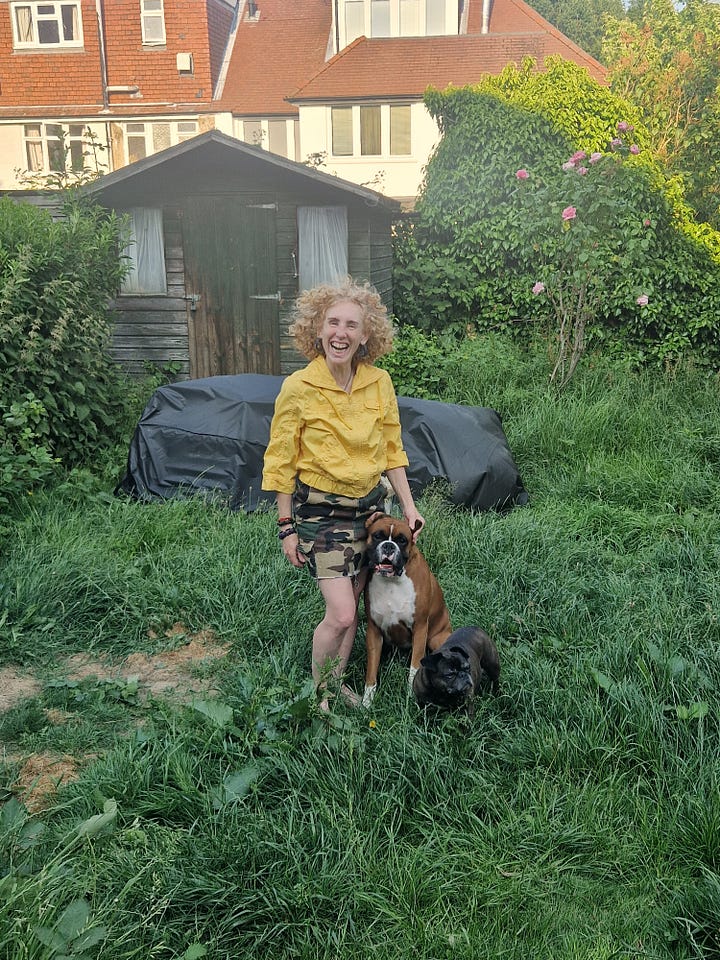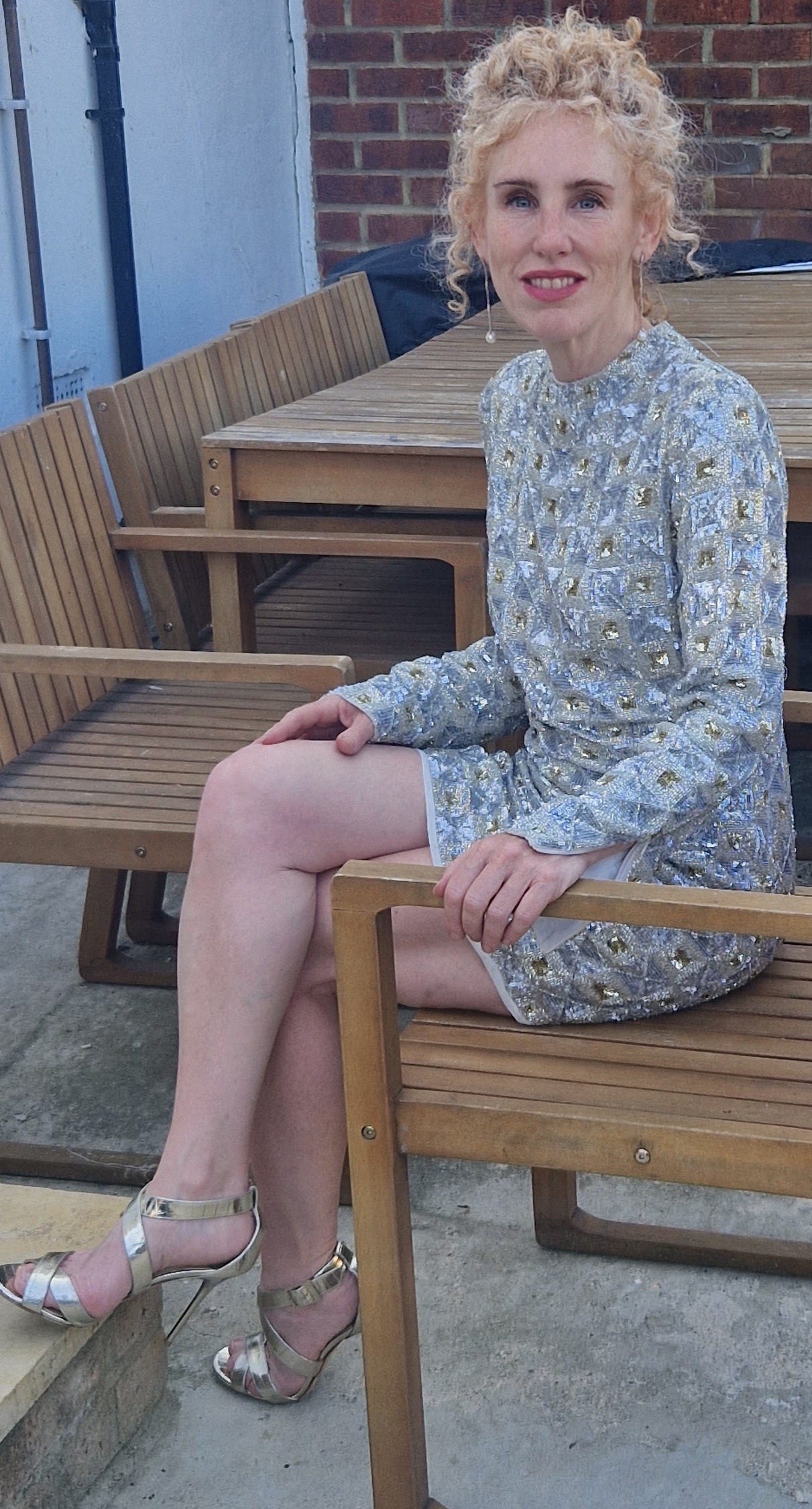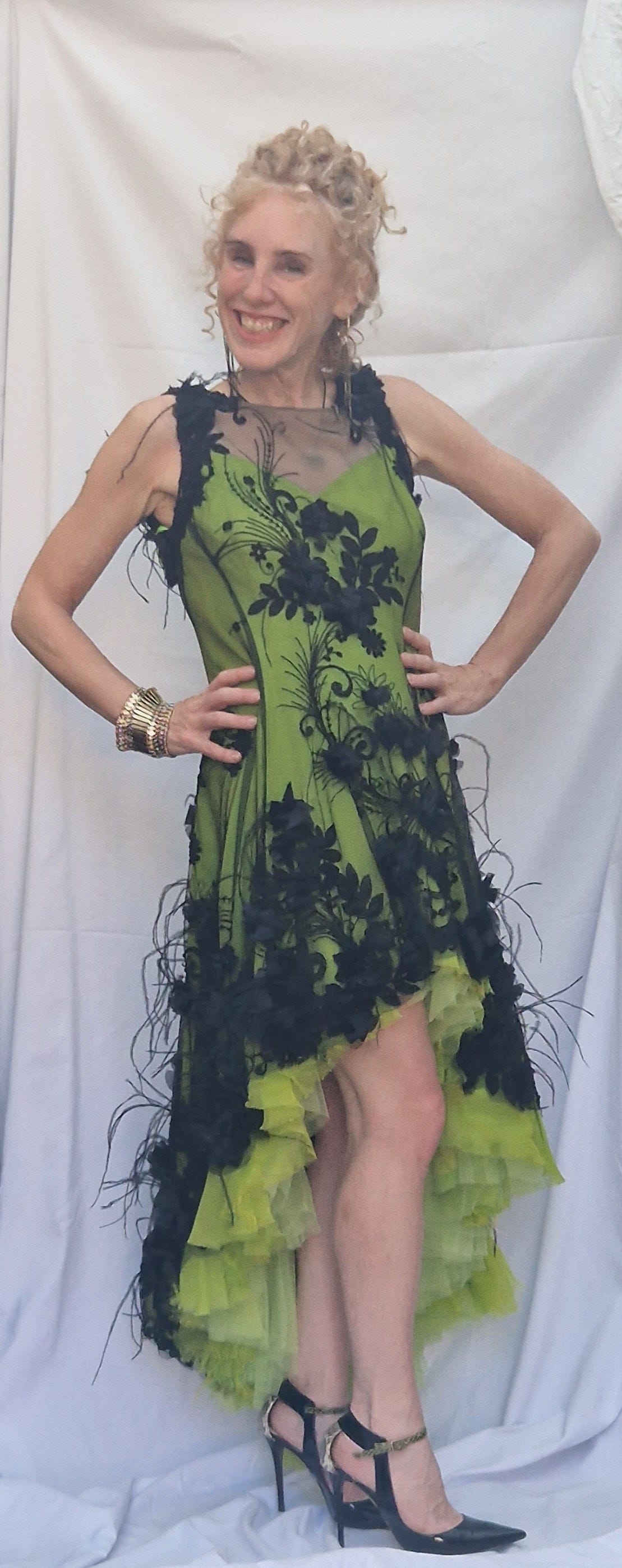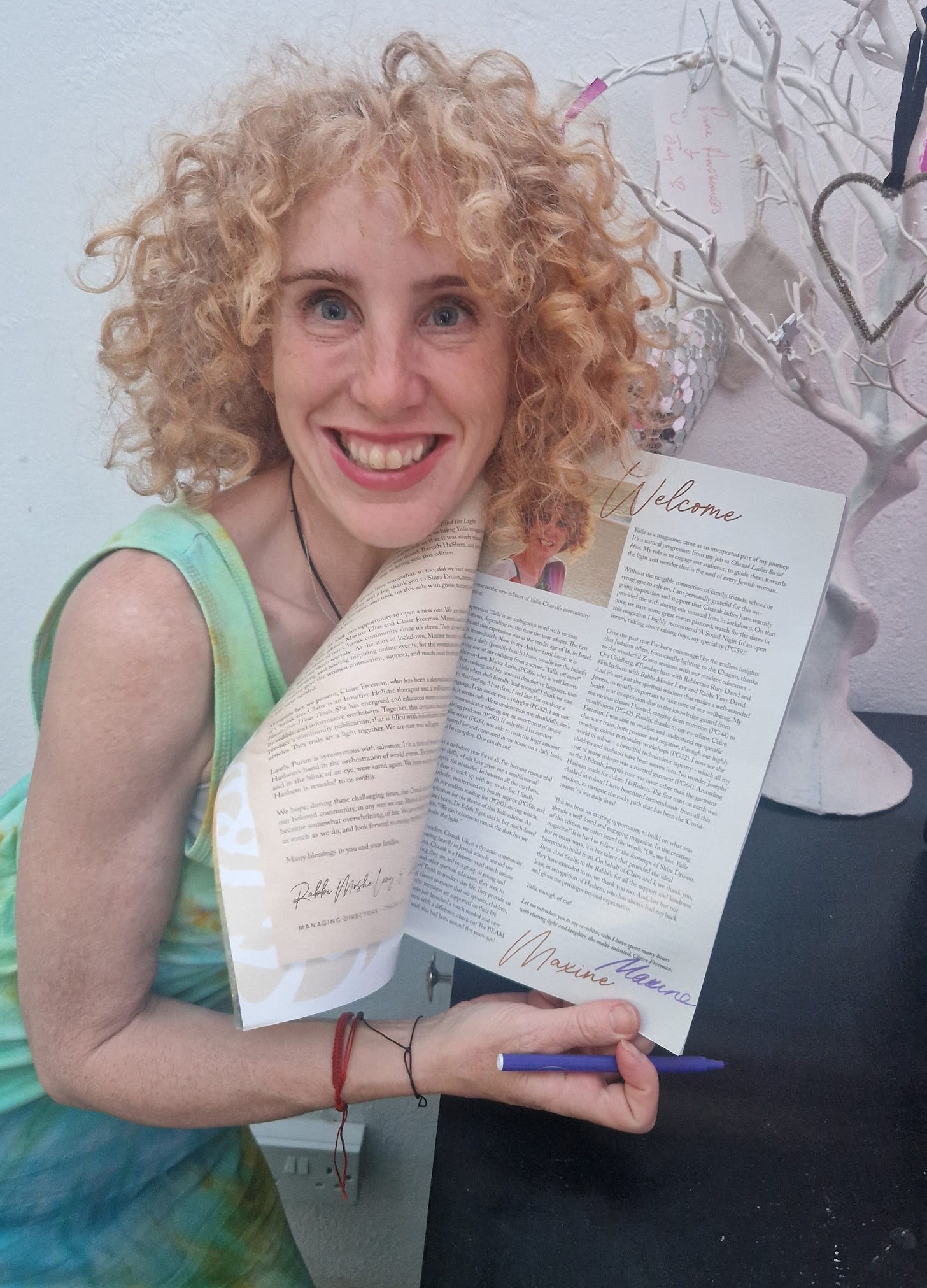The Price of a Broken Fairytale
Million Dollar Dresses to Budgeting for Groceries: Love, Lies, and a £4.3 Million Breakup
Photo by StreetLife Stories
Rochelle’s story is one from money. She is a mum to 4 sons and 1 foster son and she previously lived in a £4.3 million house. She spent her days organising large-scale charitable events for fun and was also the co-editor of Yalla magazine, a popular publication within the Jewish community. She’s worn custom-made dresses for one-off events and has owned several pairs of high-end designer shoes. In her own words, she had a good life.
Rochelle believes cultural conditioning played a major role in the demise of her marriage and in turn, the loss of her home.
Rochelle’s love story began at the age of 8 playing kiss chase in the playground. Edward was a cute cheeky kid; a lookalike of Mowgli from The Jungle Book. They parted ways and found each other again in their teens which is when they began to date.
“he was very handsome. His skin colour was gorgeous, but everyone else was white”
The school was predominately white so being the only Indian kid brought its own insecurities, as you can imagine. To add to this, Edward suffered from dyslexia to the point he was not able to read or write.
This may be hard to understand for some, but coming from an Indian background myself, I can relate to the pain and pressure Rochelle was describing for Edward. There is nothing like it. It’s a ticking time bomb and at times you’d rather not exist than have to deal with the idea of not just letting one person down, but what feels like an entire continent. Think your cousin’s wife’s mother has no say on your life?
Think again.
There is no concept of making a decision for yourself. Everything is uttered whilst thinking “what will they say and how will I explain this”. To be one of either sex brings its own additional layers of challenges to the mayhem.
“Edward is 1 of 4 siblings. Unfortunately for him, he was from an Indian background. Fortunately for him, he was the only boy in the house and being the only boy in an Indian household, he was put up on a pedestal irrelevant of his inabilities. He was the king of the household. He was, again, the Indian heritage. He didn't belong to just the parents, he belonged to the community… but with his dyslexia and his insecurity through dyslexia, there must have been major insecurities around the fact that he couldn't do what everyone else could do”
Additionally, Edward’s mother lost the family home due to a gambling addiction which brought a new level of shame to the dynamic. The family were in a fortunate position to downsize but the overhang of deep cultural and societal shame is not an easy thing to shake off.
“Shame. It’s all about shame”
Rochelle went on to explain that the aesthetics of Edwards’s sisters and academic success all played parts in how the siblings saw themselves and each other which later contributed to how they treated themselves and one another.
“[one of the sister’s] took on the matriarchal role, and she was the university one and she was doing well for herself. She didn't have to rely on anyone. She bought her own flat. So she felt very accomplished but actually mentally and emotionally, she was damaged. She was called, growing up, the fat elephant”
The in-depth details provided to me by Rochelle about how the family treated one another and Edward’s upbringing really resonated with me. The burden that shame carries is a drug within itself but not even one you have chosen to try on a whim. It’s such an integral rooted part of you that you are not able to fathom a glimpse of anything outside that. Every minute decision or thought is blown so out of proportion that you question everything as to the impact on another person, rather than what your true values and beliefs are. It’s excruciatingly exhausting.
“Shame is insidious, hard to identify, awful to feel, tricky to contain and easy to pass on” Carolyn Cowan
Rochelle continued to give me the background of how she believes The Strategist of her husband’s family business “coercively controlled” Edward. I can understand how this could be the case. The brown community are underlyingly taught that everyone outside of us knows better than us, and admittedly we end up putting up a shield to the people who mean the most to us even when it is far from what we would consciously choose to do. You could call it a backward survival mechanism. But this comes from conditioning and unfortunately, it can really fuck with you.
Yes, we do have personal choice but those choices, when we ask ourselves why, are because of some past experience or pattern we have been exposed to, and digging into that is one dark task.
“People often ask how to avoid cultural conditioning, as if it were a disease for which we need a vaccine. But, remember, cultural conditioning is an inevitable, arguably necessary human adaptation that helps us become functioning members of society. So it’s not about avoiding cultural conditioning. It’s about building your awareness of it so you begin to notice your judgments and examine them before reacting to unfamiliar situations”
[https://www.exceptionalfutures.com/cultural-conditioning/]
Due to Edward’s upbringing, Rochelle believes that he lost himself from his sense of feeling. He listened to The Strategist of the company who, granted made some significant positive business changes at the start but as time went on, his actions led to the downfall of Rochelle’s relationship.
The family had made their fortune from the garment business. The Strategist found ways to downplay Rochelle’s experience and talents in organising events and banned her from helping in the family business. It seems The Strategist orchestrated a long-term plan to gain significant shares in the company. Initially, he brought in a new data system, which was pitched to help track productivity. Events started to unfold where The Strategist and Rochelle’s sister-in-law appeared to have some type of romance. During this time, The Strategist had fed ‘concerns’ that the sales manager was up to no good. Rochelle assures me the entire situation was choreographed for the sales manager to be set up, using the new data system as ‘evidence’. From then on, The Strategist was wholly trusted by Edward and family for all upcoming decisions. He re-structured the team roles and placed himself as CEO of the company, while persuading Edward and his siblings to not share this information with Rochelle.
“so I’m neurodivergent and what I understand now but at the time I didn’t know, is all this brain, hippocampus and amygdala and how the nervous system works with anxiety and anxiety with ADHD, we can get anxious over injustice because we are seeking truth and justice. When we don’t have it, it can make us really anxious”
Considering Rochelle didn’t know what she knows about herself now, life at the time was confusing. Her life was, or so she thought, simply flowing but things soon turned because of Edward’s changed behaviour in his communication to her of the family business affairs. Eventually, it all came to a head with Rochelle suffering from a nervous breakdown.
“my husband, the love of my life for 33 years turned into something of a person I didn’t recognise…We had 6 months of absolute hell. I was hearing a completely different person and that person I was hearing I already knew didn’t like me. My nervous system went completely haywire at the same time. We were dealing with COVID, we were dealing with grief – my father-in-law had passed away, and my own father had been isolated from the family so we didn’t really know what was happening with him and I had perimenopause kicking in. The ADHD for the prior 5 years had been a suspicion in my mind so the neuro divergence reaction to the menopause, to COVID, to the grief, to the isolation was just enough to break me and watching the love of my life being coercively controlled and projecting onto me, sent me into a spiral and I had a nervous breakdown”
After another disagreement where Rochelle was lied to, she suggested marital therapy or divorce. Edward’s response was “I have to go to work”, he came back the next day with an answer of “divorce”. Rochelle believes, that after discussing with The Strategist and ensuring everything was in place, Edward confirmed the answer of divorce.
Rochelle decided the house was more than big enough for the both of them not to collide with one another. After some time, Edward came to Rochelle with what she describes as a ‘bribe’, which at the time was called a ‘proposal’ from The Strategist. Said proposal was handed to her with the understanding that if she did not sign the paperwork within 48 hours, “her and her kids’ lives would be damaged”. Rochelle’s lawyer (paid for by her brother) had advised her not to sign the documents. When she asked for an extension, it was verbally agreed but under the condition she does not live at the house and the threat of a non-molestation order was issued. Unfortunately, 1 of Rochelle’s sons suffered an accident so she decided to visit him, accompanied by her mother, believing that Edward did not truly mean the threat of an order. Rochelle was in for a shock. The locks had been changed and to her dismay, within 3 days of her visit, she received a non-molestation order.
After a series of turbulent events, Rochelle stayed at her elder brother’s place but the only way to get her out of her depressive state was to reunite her with her dogs. To do this, Rochelle had to move to her younger brother’s, sleeping between a sofa and a child’s bunk bed with her 2 dogs in a small studio that also had to cater to her niblings visiting. Rochelle was in this situation for around 4 months.
“my dogs were the only thing keeping me alive. I did try to commit suicide. I did speak to Mind. I did speak to my GP regularly. I had a psychiatrist, I had a therapist and a coach”


The proposal was later pulled because Rochelle “didn’t answer quick enough or give the wanted response”. Rochelle felt helpless as she felt alone fighting against corporate lawyers. Luckily, Rochelle’s mum and brother continued to help with lawyer fees.
“I was allowed to have a sum of money for living expenses, but I didn't have anywhere to live and I wasn't paying my brother rent. I didn't have money coming in for the first few months. I didn't have the ability to pay rent. My ex did say that he would give me money for rent, he didn’t. It was actually around 4 months I was looking at properties without a cash deposit and I wasn't in a situation where I could get a tenancy agreement so I couldn't claim housing benefit. So I was in this catch 22”
Although Rochelle was due living expenses, Edward stopped paying for 8 months and when this got to court, the Judge ruled he did not have to back pay and any following payments were also decreased. This resulted in Rochelle taking out a loan, which was only possible because her name was listed on her original home, aka, “the palace”.
“Thank God I owned a property, I could still use the property as an asset and I could take a loan, but very, very high interest rate. So whatever extortionate money I was paying for my rent, I was paying extortionate money on top of that for the interest of the loan and my money was running out, I only had a set amount of money, and I lived as frugally as I could… I was paying more for dog food than my own food”
Rochelle explained how she had to re-learn the basics from scratch. It was a different world for her. She wasn’t used to counting the pennies or finding ways to make the amount she had stretch.
A common question that has come up in several conversations I’ve been involved in is: why isn't basic financial literacy and stock market education included in our school curriculum? Imagine a world where we all learn these essential skills at a young age? It would not only secure our futures but also empower us to handle our finances with confidence and competence. Such knowledge would benefit individuals as financial security enables us to pursue our dreams and enjoy life to the fullest. By embracing this change, we could move away from a mindset of scarcity and fear, creating a more empowered society. Instead of imposing further cuts and added pressure on vulnerable individuals, we could consider re-strategising the benefits system and invest in teaching financial wellness, providing individuals with the tools to thrive and contribute positively to the world.
“I had to relearn how to cook, to do food shopping, and I actually had to not go anywhere that I would have. I was like a magpie before if I saw something sparkly or pretty and you know, I would buy it if it wasn't expensive. I was now becoming agoraphobic because I was scared of who I was going to see. I was scared of the perception that was going to occur, like what they're going to think of me. My reputation was damaged. My children were mentally tortured. I was tortured. I'd had a nervous breakdown about all of this stuff, I actually shrunk. In that shrinking, I had to learn how to shop for 1. I was always conscious of throwing food away but the men in my life didn't give a shit because if I'd cooked burgers for tonight's dinner and they wanted a Deliveroo, that's what they would do. If Daddy could do that, the boys could do that. We just threw so much food away and now I've had to literally learn how to shop whereby this is Monday’s meal, this is Tuesday’s. I’ve never done that before. I'd meal planned in as much as ‘oh, they're like this’. I’ll pick this up and if I don't need it this week we'll put in the freezer for next week. I didn't think, now I'm literally meal-planning specifically. I've never done that before. So I had a year where I was having to adjust. I didn't know how to pay bills. I didn't know how to cook. I didn't know how to communicate. I had lost trust and faith in the world and I didn't know where to go”
Rochelle is in a privileged position to have siblings who have been her saviours. Her younger brother selflessly used his savings to cover Rochelle’s first year’s rent upfront, giving up his home-owning dreams.
The money she receives from universal credit provides her with day-to-day help and helping to pay back the borrowed rent and loan. Rochelle is now in debt of close to £200,000 which, of course, will keep accumulating due to the high interest rate. Edward is also in business debt and is claiming Rochelle is also responsible for this.
Rochelle’s patience has been tested a number of times. She’s experienced broken promises, her signature forged, debt, loss of relationships, lies, several uncalled-for events and false charges brought against her. She spent weeks without food and no access to her belongings while learning to understand her health conditions and living on the opposite side of the spectrum of financial wealth, and yet has still found the power to say ‘no’ when Edward offered her hush money to stay off social media and keep quiet about her story.
Aside from spending her days dealing with legalities and trying to mend her relationship with her children, Rochelle is now on the path to be a life coach. Her dream is to coach others, helping them to feel confident and good within themselves, by sharing the positive changes she’s felt within.
Rochelle's story serves as a powerful reminder that this could happen to anyone, irrespective of financial status. It doesn't matter if you're a millionaire or not; we all rely on access to cash flow. Our bank balances, stocks, shares, and properties may give us a sense of security, but circumstances can change in unexpected ways.
We must not judge others solely by their assets, as life's twists and turns can lead to situations where those assets become inaccessible or insufficient. Rochelle's journey illustrates that none of us are immune to such challenges. She never imagined a day when homelessness would be a concern while living in her mansion, or that her brother would sacrifice his dreams to support her financially.
It's essential for us all to recognise that life is unpredictable, and any one of us could face similar circumstances. Empathy and understanding can go a long way in supporting those who find themselves in such difficult situations. Rochelle's story is a call to be mindful of our own vulnerability and to extend compassion to others facing hardships beyond their control.




